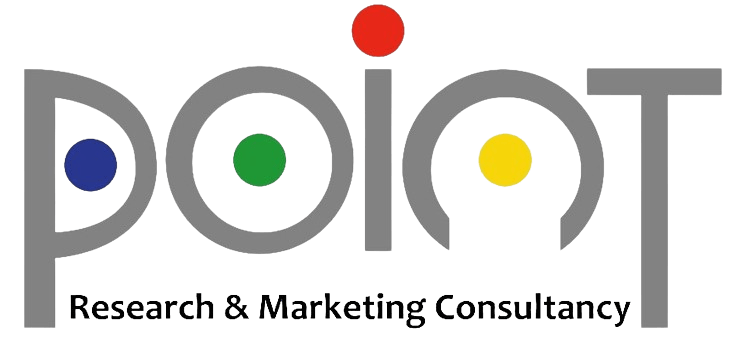
Data-driven decision making is transforming marketing management in businesses. It allows businesses to make smarter and better decisions based on real data rather than hypotheses. If businesses are aware of what customers require, then they can create good advertisements that attract the right target market. It implies that they do not waste money on performing advertisements but focus on those that will bring more returns.
With data, companies can actually understand what works and what doesn’t for them in modern marketing. This allows them to alter the way they do it and improve overall performance. If a company finds that a specific kind of advert is not performing well in grabbing attention, they can make minimal changes to improve it. This leads to better consumer engagement and sales.
Data-driven decision-making also helps in delivering a good customer experience to companies. Because companies understand the behavior of customers, they can create more customized offers and messages. Customers feel valued and have a better opportunity to become loyal to the company.
With knowledge, companies are also able to make the most out of their money. They don’t have to use it on impulse ad campaigns. They are able to focus on the ones that will be successful. They are able to get the maximum return on investment.
Generally, data-driven decision making helps companies become competitive. Through effective decisions by means of efficient analysis of information, companies can create tailored campaigns, optimize their strategy, and remain ahead of the game.
Primary Benefits of Data-Driven Marketing
Wiser Targeting – Target the right audience with the right message.
Improved Budgeting – Optimize marketing budgets with real-time data.
Improved Customer Experience – Deliver improved experience with customer preference insights.
Data-Driven Marketing Tools
Analytics Software – Helps companies track website traffic, social media usage, and sales trends.
Customer Feedback – Gather reviews and feedback to improve products and services.
Automation – Using technology to make adjustments in marketing strategy in real-time based on facts.
The Nature of Data-Driven Decision Making
It involves data-driven decision-making, as well as intuition. Data analysis and interpretation, and gathering to make decisions that are in line with long-term business goals fall under this category. Data-driven decision-making is safer, and businesses can create accurate advertising campaigns.
Benefits of Data-Driven Decision Making Marketing
Enhanced Audience Insight
Customer analysis provides preference and behavior data to guide campaigns in higher levels of granularity. Business can observe buying and engagement behaviors with customer behavior insight, which provides greater consumer loyalty and satisfaction. They can personalize an experience on such a level of granularity, resonating with individual clients with repeat business opportunities.
Optimized Marketing Spend
Data analysis provides the best investment in top-performing modern marketing strategies. Through the discovery of top channels and tactics, budgets can be allocated to good programs with minimal wastage. Maximization maximizes every dollar invested to be accountable for marketing impact, which eventually leads to maximizing ROI. For example, past campaign data may uncover what percentage of the audience is positively reacting to aimed messaging in an attempt to make precise targeting actionable in future campaigns.
Confirmed Insights into New Trends
Using information, businesses are in a position to see upcoming market trends and demand before the competition. Predictive analytics depends on past data to forecast future trend and behavior and thus means one can form strategy in advance. It helps businesses place product and marketing with evolving needs in anticipation of the marketplace. For instance, social media trend mining is able to identify consumer interests as they form so that companies can rebrand and message accordingly subsequently.
Higher Customer Retention
Customer behavior monitoring is employed to identify probable signs of churn, and action can be taken on a timely basis to retain customers. Purchase and usage behavior can be monitored by companies to identify waning interest and remain ahead of customer loss. Direct mail interventions through offers of high-end discounts to inactive customers are effective in rekindling interest and inducing repeat purchasing.
Effective Marketing Processes
Data-driven automation tasks are done more efficiently with less labor and fewer mistakes. Market research consultancy departments function better, too, with more time to devote to strategic campaigns. Automated tasks can send an email, post to social media, and report accurately and reliably. Marketing automation platforms have the ability to segment audiences based on behavior and nudge specific messages that maintain engagement without incessant manual intervention, for example.
Utilization of Data-Driven Techniques in Contemporary Marketing
Investment in Sophisticated Analytics Software
Using tools like Google Analytics and CRM software, companies can gather and process data in a timely manner, and hence, there is better-informed decision-making. The software provides information regarding traffic on their site, their customer’s behavior, and the sales trend, and these shape the strategic realignment. With the integration of numerous sources of intelligence, companies can see end-to-end their marketing and recognize areas of strengths and weaknesses of their own. For example, a CRM application may record the customer’s engagement at all touch points and provide valuable insights on future personalization.
Building a Data-Driven decision makingCulture
Building a data trust culture means that there will be evidence-based decision-making, instead of intuition, to give more stable and successful outcomes. It empowers teams to ask the correct question and get data to substantiate them, increasing creativity and innovation. This transformation builds data-driven practices to benefit the organization collectively. A classic case is a normal data literacy education that can provide employees with the ability to decode and manage data well in the course of their business. Continuous Monitoring and Updating
Constant monitoring of data allows companies to make timely changes to strategies to make them effective and current in a changing market.
Regular tracking allows for the establishment of future trends and issues so that one can intervene in good time. The intervention in good time allows for the marketing efforts to be in line with prevailing consumer view and market trends. For instance, tracking the manner in which people use social media can be able to forecast changes in popular opinion, followed by the modification of content strategy to maintain a positive impression.
Challenges in Data-Driven Marketing
Data Quality and Precision
It is of utmost importance to ensure data gathered are accurate and relevant because substandard-quality data can provide poorly designed plans.
Strict data management processes like data cleansing and validation on a regular basis are essential to ensure integrity. For example, stale or redundant data in the customer database may result in inefficient targeting and wastage of efforts. By implementing strict data governance policies, organizations can prevent such risks and make effective decisions based on clean data.
Data Overload
With all that information, sometimes it becomes challenging to figure out which pieces of information are most applicable, and this is the reason data management activities should take precedence.
Prioritization techniques for data and KPI prioritization reverse data overload. For example, instead of attempting to measure all the measures that exist, organizations can concentrate on those that will have the greatest effect on their objectives, for example, conversion rate or customer acquisition cost. This concentrated effort gives actionable intelligence in the form of strategic objectives.
Privacy and Security Concerns
Safe handling of customer information for building trust and legal compliance is ensured with robust data protection procedures. Compliant data privacy regulation and its robust security processes prevent data breaches and maintain consumer trust. For example, encrypting sensitive data and security system update processes can prevent illegal exploitation. Further, transparently describing the data gathering process and providing customers with control over data ensures trust and legal compliance.
The Role of Market Research Agencies
Working with a market research agency can make a significant difference in data-driven marketing campaigns through the utilization of experience in data gathering, data analysis, and data interpretation. Market research companies have the expertise to gather and analyze consumers’ data to provide data that allows businesses to make the right choice and re-calculate their strategies accordingly.
Conclusion
Data-driven decision making marketing is now a prominent feature of contemporary marketing. With the assistance of data analysis, companies can acquire a comprehensive understanding of their market, maximize marketing expenditure, predict future events, enhance loyalty, and maximize efficiency. Establishing a data culture as well as working with good agencies also contributes to the above advantages to make marketing effort useful and effective in the current fast-paced world.A market research company provides expert analysis of marketplace trend and consumer mentality, facilitating sound decision-making along with effective strategy development.
FREQUENTLY ASKED QUESTIONS (FAQs)
What is data-driven decision making in marketing?
Data-driven decision making in marketing is using data analysis in marketing to make decisions so that decisions are made based on data, not on instinct.
How do small businesses become data-driven in their marketing since they don't have resources?
Small businesses can take advantage of low-cost analytics tools and team up with a market research firm to have access to leading-edge analysis without heavy investment.
What is the role of a market research consultancy firm in targeting marketing efforts?
Market research consultancy helps businesses in understanding the market trends and the mindset of the customer and thus leading to more effective marketing efforts.
How does market research help in fulfilling customer needs?
Market research gathers information on consumer behavior and choices and helps businesses in creating products and advertisement campaigns based on the requirements of the customers.
Why is it recommended to use a market research company for data-driven marketing?
Using a market research company provides expert analysis of marketplace trends and consumer mentality, facilitating sound decision-making along with effective strategy development.
Post a comment Cancel reply
Related Posts
The Future of Shopping: UAE Consumer Behavior Trends for 2025
UAE Consumer Behavior is being transformed by emerging technologies, international trends, and evolving lifestyles as…
Importance of Product Testing in UAE for Business Success
Product Testing in UAE is quite simply the most critical process involved in developing and…
How Customer Satisfaction Surveys Can Transform Your Business
Customer satisfaction surveys are one of the best resources a company can utilize to…
Feasibility Analysis Study Cost: What Businesses Should Know
Feasibility Analysis Study is perhaps the most critical process for any company that would…







